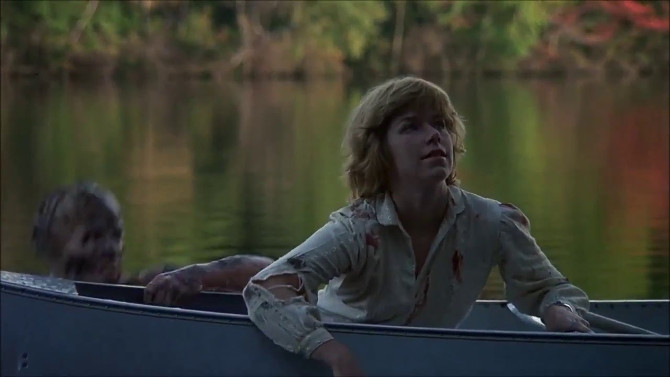
An Impossible Mission
How do you wrap up a franchise like Mission: Impossible? That is, if this even is the final installment... as they’ve made it sound (while at the same time, stars not named ‘Tom Cruise’ pipe up and suggest that might not be so). It has been twenty-nine years, with different writers and visionary directors – from twisty Brian De Palma and the action hair stylings of John Woo, to the lens flares of J.J. Abrams and animation expert Brad Bird, it was only about ten years ago that the franchise decided to opt for The Usual Suspects scribe Christopher McQuarrie for the final four. To return to that opening question once more, you could end with a Sopranos’ style cliffhanger, simply make another entertaining movie like the many before – like Everybody Loves Raymond did it with its final episode, or try to tie everything up in a neat little bow by bringing everything together as the Daniel Craig era did with James Bond. Well, it is definitely more along the lines of the latter example, with some distinct differences.
-

Friday Night Frights
Friday the 13thApril 29, 2018In a mere seven year span, three of the most iconic horror spooks of all-time were created: Michael Myers in Halloween (1978), Jason Voorhees in Friday the 13th (1980) and Freddy Krueger in A Nightmare on Elm Street (1984). Each has spawned a nearly inordinate amount of sequels and remakes: not including the original, nine (and soon to be ten), eleven, and eight, respectively. . . with one of those being a crossover – 2003's Freddy vs. Jason. It is somewhat reminiscent of the creative juices that were flowing in the horror craze of the 1930s and 1940s, when original, folkloric, and literary monsters became the stuff of Hollywood legend – think Dracula, The Invisible Man, Frankenstein, The Wolfman. . . and later (in the 50s), the Creature from the Black Lagoon (all of these films also produced a bevy of sequels). With Halloween already having been reviewed this past Halloween and A Nightmare on Elm Street being planned for this upcoming October (a perfect time to celebrate its thirty-fifth anniversary), Friday the 13th is on the chopping block today. Part of the slasher subgenre, it was released in the period’s Golden Age – 1978-1984, following in the wake of John Carpenter’s successful low-budget horror film.
-

Flying High Under the Radar
American MadeApril 27, 2018With the “based on real events” thing getting a bit old, some recent films have started to have fun with this oft-used opening – American Hustle introed with “Some of this actually happened”, while today’s film, Doug Liman’s American Made, was described by the director as “a fun lie based on a true story”. . . a clever way to accentuate the addition of many fictional plot points to enrich the narrative. Tom Cruise plays Barry Seal, a seemingly staid airplane pilot secretly looking for a thrill in his exhausting, routine-driven life. Married to Lucy (Sarah Wright), they have what a traditionalist would coin – the middle class dream – family, home, and solid income. Yet, a well informed CIA agent, Monty ‘Schafer’ (Domhnall Gleeson), tracks Barry down at the end of one of his flights – it does not take much to convince the pilot to sign up, and he is soon working questionable missions for the agency all over Central America.
-

Get Your CAPE On 4.0
April 24, 2018With a horror-rock tinged twist, this year’s CAPE – Cornwall and Area Pop Expo (the fourth iteration), was a huge success. Uniting aficionados of motion pictures, comics, collectables, costumes and music (everything under the pop culture umbrella) together, the Benson Centre, usually a chilly ice rink, was hot with bodies, eager event goers, ranging from wide-eyed children to decades long collectors, exploring the varied booths, finding treasures for their homes, meeting friends old and new. Gracing the floor were three horror related actors: Ari Lehman, Jayson Warner Smith, and Randy Havens. Ari Lehman can be best described as the “First Jason”, Voorhees, that is. . . playing the small but integral part in the first feature of the franchise, 1980's Friday the 13th, directed by Sean S. Cunningham. He is part of one of the greatest jump scare moments ever caught on film (the genesis of a character that would become, by the third motion picture, the masked murderer that has been ingrained in the minds of countless generations of movie watchers). He has also frequented many Indie horror flicks, The Barn, Pi Day Die Day, Terror Tales and this year’s yet unreleased Rock Paper Dead (co-written by original Friday the 13th scribe Victor Miller and directed by Fright Night and Child’s Play director Tom Holland), to name but a few.
-

Fake News Film Facts. . . Vol. 1
April 22, 2018A few nights ago, I had a rather interesting brainstorm: for a change of pace (as most of my reviews are more seriously constructed), I would, from time to time, post completely fabricated facts revolving around the movie world. Some will poke fun at silly aspects found (or ignored) in films, while others will satirize the supposedly real happenings of the movie world behind the scenes. Just in case you haven’t seen the films joked at below, a very short synopsis has been added next to its bolded/italicized title. So, this is my first go at it. . . feel free to let me know what you think in the comments section below (and why not try your hand at creating something fun revolving around a feature you’ve recently seen).
-

The Sound of Spine-Chilling Silence
A Quiet PlaceApril 20, 2018Baby Driver, Atomic Blonde, Dunkirk. . . three movies over the past year or so that have set a new standard for the way music and sound are used in the context of movies. A Quiet Place continues the recent trend, with its clever use of sound, and the lack thereof, playing an integral role in this very unique horror film. Perhaps the closest thing to a silent movie since Academy Award Best Picture winner The Artist (2011), John Krasinski co-writes and directs this original story. A post-apocalyptic type tale, yet with all the beauty of nature, aliens have invaded the planet, decimating the population and causing fear and chaos to run rampant in the hearts and minds of the secluded populous that is left – the audience is not provided with a glance as to how all this happened, but rather, enters the tale eighty-nine days after first contact.
-

Phantasmagoria
PhantasmApril 17, 2018The English language has so many fascinating and underused words: conundrum, copasetic, and, most importantly, at least to this review, phantasm. . . a term that I would likely not even know if it wasn’t for two distinct sources – the works of Edgar Allan Poe as well as the title of the 1979 horror film Phantasm and its sequels. Defined as a figment of the imagination or disordered mind, as well as an apparition of a living or dead person, Poe often used it in reference to his characters, who wandered around in a fugue state, while writer/director Don Coscarelli visualizes this word, concocting a fantastical dream-like (or should I say, nightmarish) horror landscape. Seen through the eyes of thirteen year old Mike (A. Michael Baldwin), he is a boy who fears so much. Losing his parents to an accident, he constantly trails his older brother Jody (Bill Thornbury), worried that he too will leave him. To flash back for a moment, the movie actually opens with another death, that of a family friend who is killed after climaxing in a graveyard. . . the mysterious Lady in Lavender (Kathy Lester) finishing him off after she is satiated. Made to look like suicide, it is another unpleasant reminder of how death has haunted Mike’s short life. The only other person in their circle is Reggie (Reggie Bannister), a loyal, oft present friend of Jody’s.
